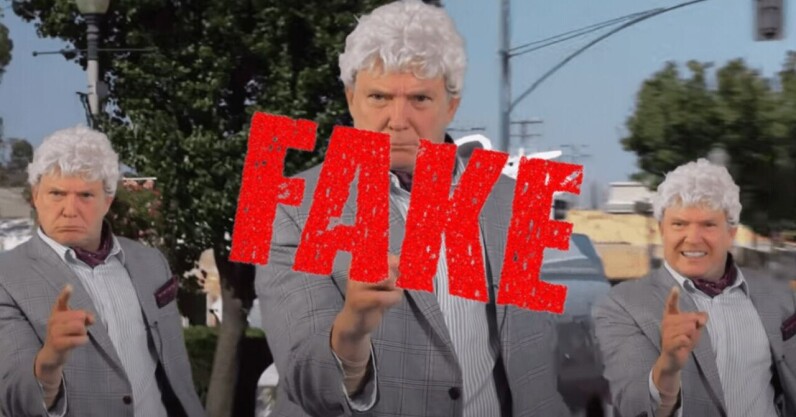Label AI-generated content ‘immediately,’ EU urges big tech
The EU is pushing big tech to apply a new method for tackling AI disinformation: labels.
The bloc wants online platforms to mark any AI-generated photos, videos, and text, a top official announced on Monday.
“The labelling should be done now — immediately,” said European Commission Vice President Vera Jourová, per DW.
The request was made amid explosive growth in synthetic media. ChatGPT has been named the fastest-growing consumer application in history, while the rise of image generators has sparked claims that “art is dead.” Jourová warned that “malicious actors” can use these services to spread fake news.
The EU’s impending AI Act aims to allay the risks, but compliance with the regulation is unlikely to be mandatory before 2026. In the interim, the union has launched a voluntary code of practice on disinformation. Tech giants including Google, Meta, Microsoft, and TikTok have all signed up to the code. Jourova now wants all of them to stamp the synthetic content on their platforms.
“Signatories who have services with a potential to disseminate AI-generated disinformation should in turn put in place technology to recognise such content and clearly label this to users,” she said.
Her demands, however, could prove ambitious. As the disinformation code is merely voluntary, the signatories have no obligation to comply — and those that try will face major obstacles.
To detect and mark all synthetic media in real-time, platforms will have to overcome immense technical challenges. Furthermore, their labels could be erroneous, edited, attacked, manipulated, or forged.
Jourová, however, said Google has already expressed confidence that it can fulfil her request. She told reporters that she recently asked Sundar Pichai, the Big G’s CEO, whether his company could identify and label AI-generated content.
“His answer was: ‘Yes, but we are developing technologies further’,” she said.
Yet not every tech giant has been so amenable. The most notable rebel is Twitter, which recently opted out of the EU’s anti-disinformation code. Ominously, Jourová said the social media giant had “chosen the hard way.”
“They chose confrontation,” she warned.

The EU is pushing big tech to apply a new method for tackling AI disinformation: labels.
The bloc wants online platforms to mark any AI-generated photos, videos, and text, a top official announced on Monday.
“The labelling should be done now — immediately,” said European Commission Vice President Vera Jourová, per DW.
The request was made amid explosive growth in synthetic media. ChatGPT has been named the fastest-growing consumer application in history, while the rise of image generators has sparked claims that “art is dead.” Jourová warned that “malicious actors” can use these services to spread fake news.
The EU’s impending AI Act aims to allay the risks, but compliance with the regulation is unlikely to be mandatory before 2026. In the interim, the union has launched a voluntary code of practice on disinformation. Tech giants including Google, Meta, Microsoft, and TikTok have all signed up to the code. Jourova now wants all of them to stamp the synthetic content on their platforms.
“Signatories who have services with a potential to disseminate AI-generated disinformation should in turn put in place technology to recognise such content and clearly label this to users,” she said.
Her demands, however, could prove ambitious. As the disinformation code is merely voluntary, the signatories have no obligation to comply — and those that try will face major obstacles.
To detect and mark all synthetic media in real-time, platforms will have to overcome immense technical challenges. Furthermore, their labels could be erroneous, edited, attacked, manipulated, or forged.
Jourová, however, said Google has already expressed confidence that it can fulfil her request. She told reporters that she recently asked Sundar Pichai, the Big G’s CEO, whether his company could identify and label AI-generated content.
“His answer was: ‘Yes, but we are developing technologies further’,” she said.
Yet not every tech giant has been so amenable. The most notable rebel is Twitter, which recently opted out of the EU’s anti-disinformation code. Ominously, Jourová said the social media giant had “chosen the hard way.”
“They chose confrontation,” she warned.
